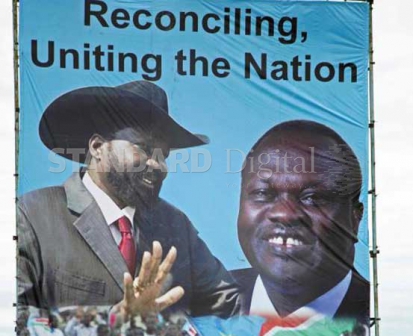×
The Standard e-Paper
Kenya’s Boldest Voice

An international committee tasked with ensuring warring South Sudan parties adhere to the latest peace deal has given Dr Riek Machar today as the deadline to take up his post as the country’s first vice president.
The Joint Monitoring and Evaluation Commission (JMEC) for the agreement on the resolution of the conflict in the Republic of South Sudan on Thursday night set the deadline for Machar, whose homecoming has been postponed several times, even after persuasion from the United Nation’s chief Ban Ki Moon.